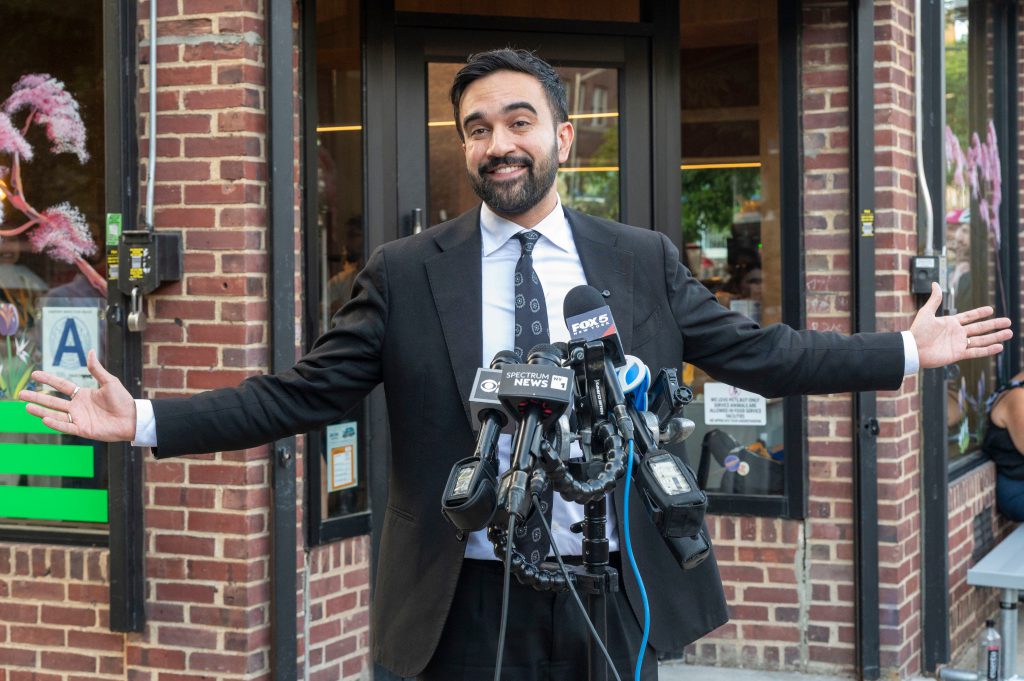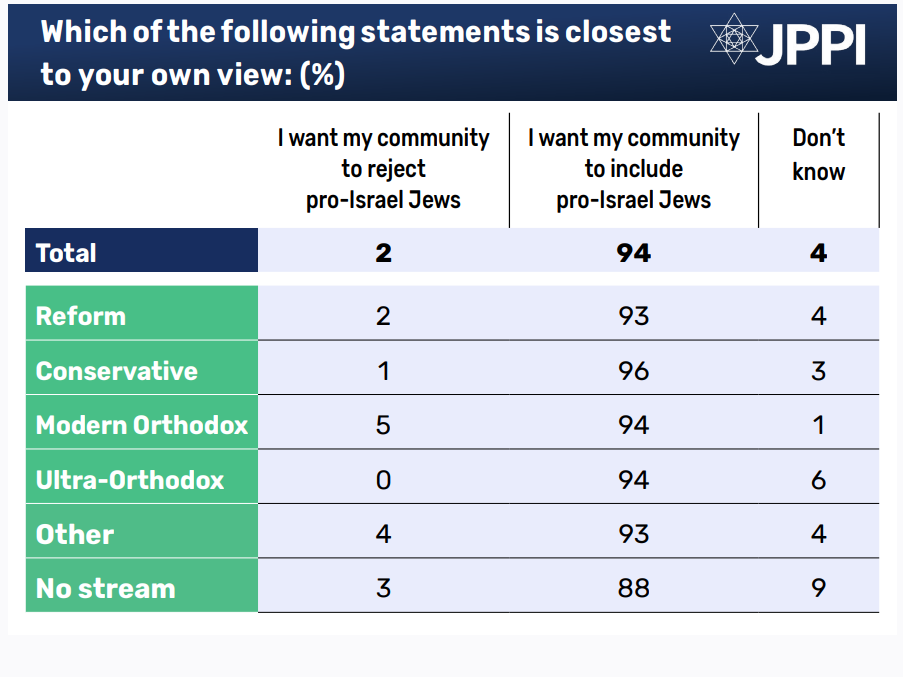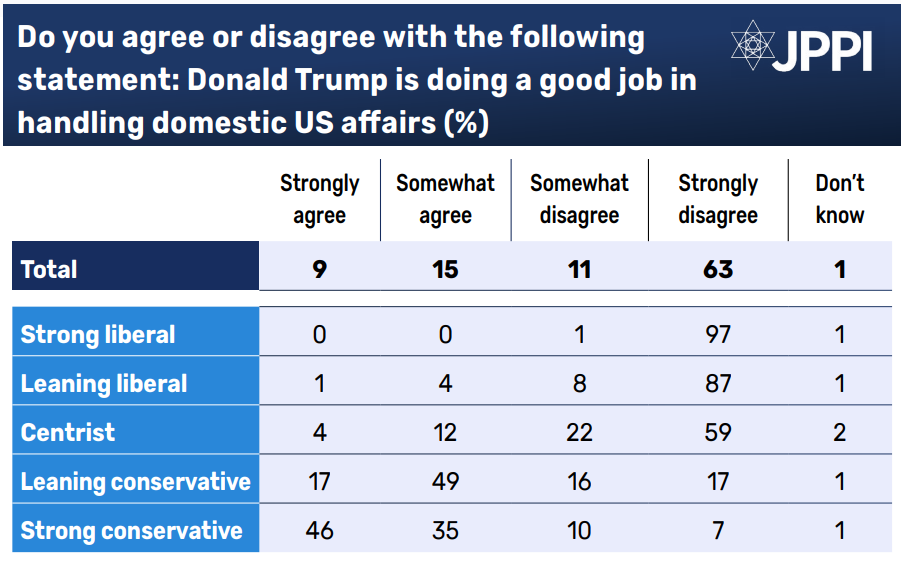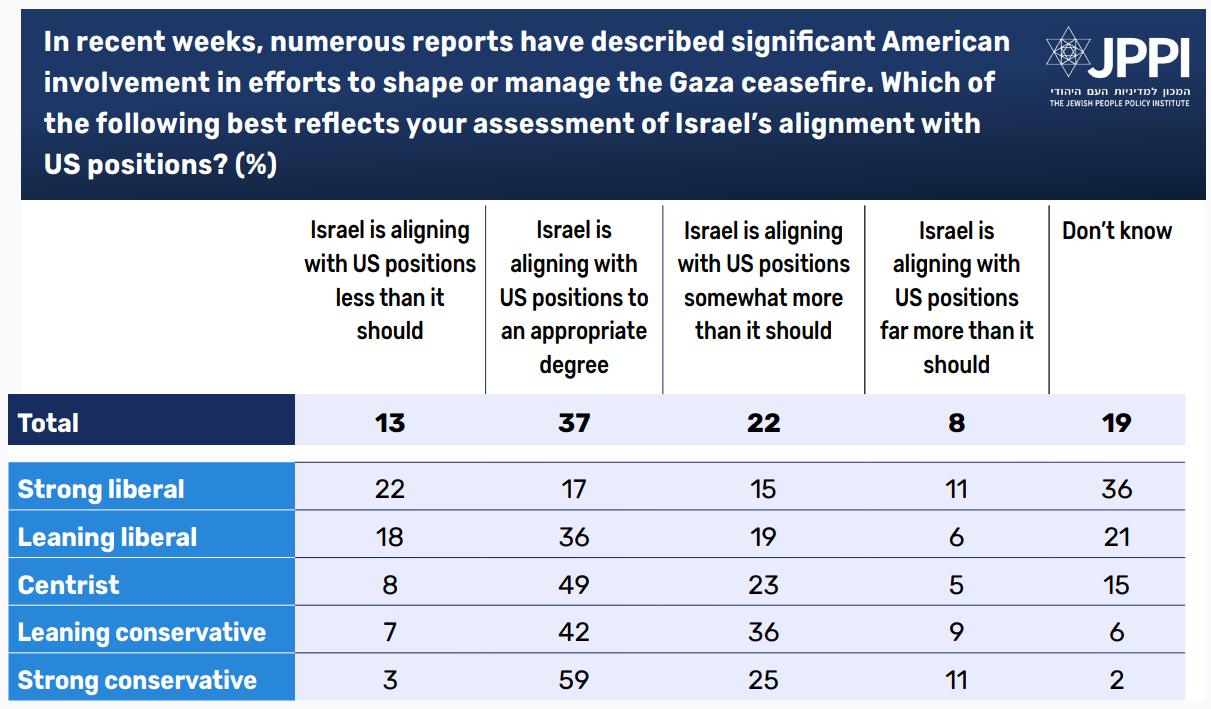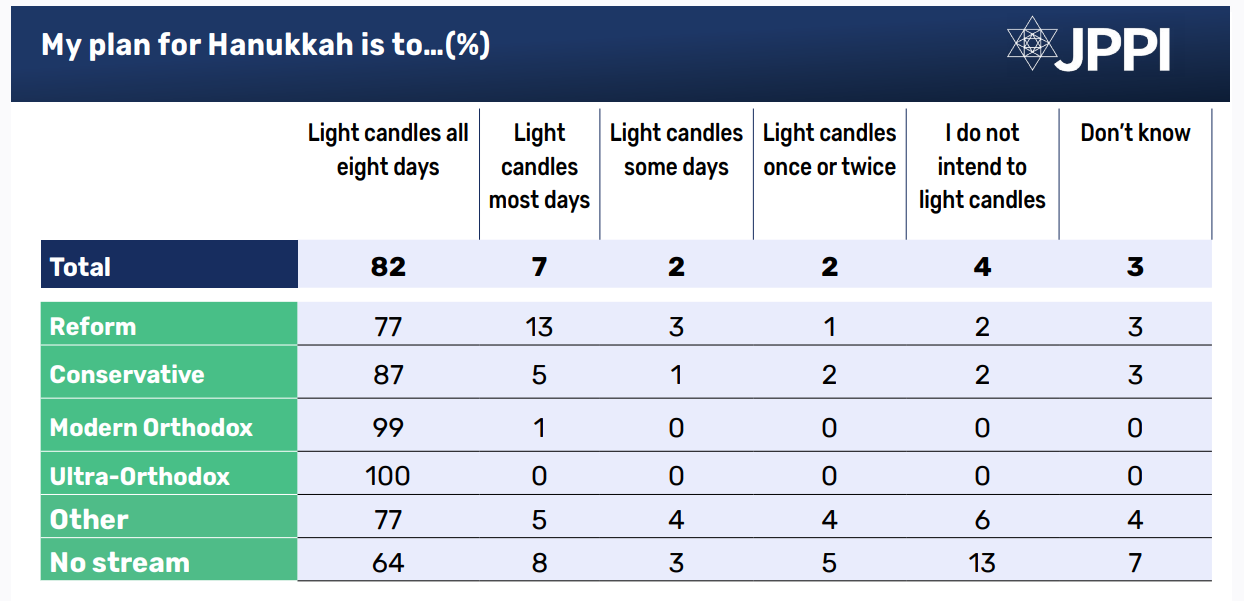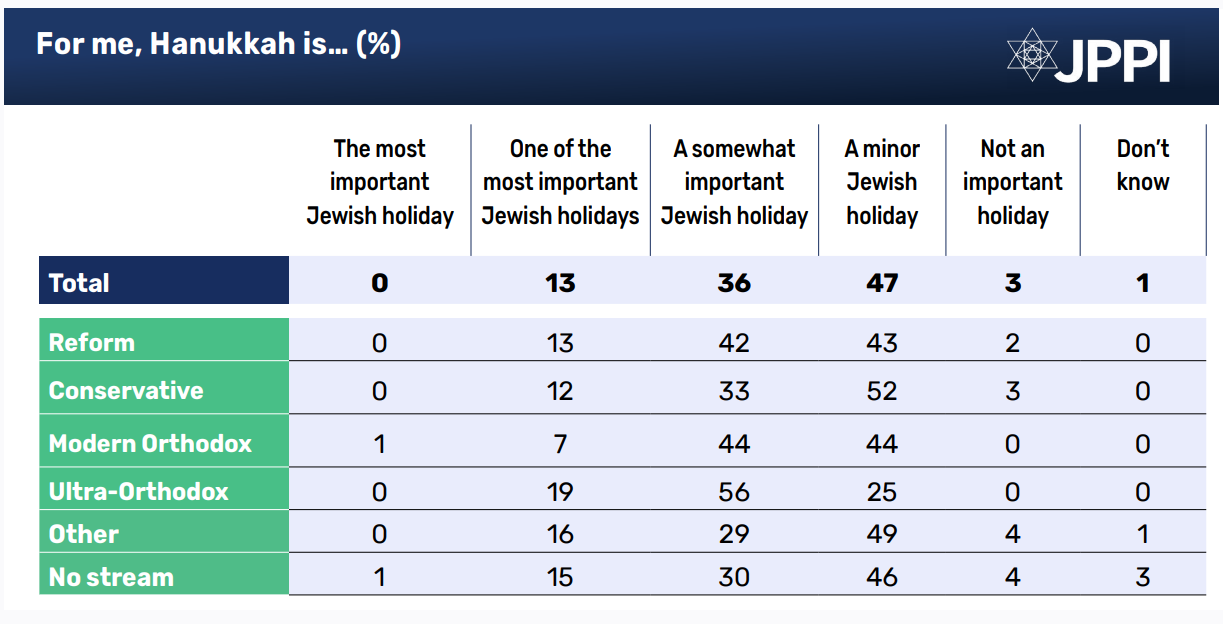A Survey of US Jews on Mamdani’s Election, Trump’s Leadership, and Perceptions of Zionism, Racism, and Antisemitism.
Main Findings:
- After his election as mayor, there has been an increase in the share of American Jews who perceive Zohran Mamdani as anti-Israel and antisemitic.
- The predominant emotion among American Jews following Mamdani’s win is concern. A majority think New York’s Jews will be less safe.
- Most are worried about antisemitism on both sides of the political map. Each ideological group is more concerned about antisemitism in the opposing camp.
- A majority of respondents consider anti-Zionism to be antisemitic; conservatives are more inclined than liberals to think so.
- About half of the Jews surveyed prefer that their community exclude anti-Israel Jews; a third favor their inclusion.
- Most respondents believe there is nothing racist about Zionism, but they estimate that the American public does perceive Zionism as having racist aspects. Most of the Voice of the Jewish People respondent panel self-identify as Zionists.
- American Jews are less likely than Israeli Jews to see Trump as “the best friend Israel has ever had in the White House.”
- A majority of the Jews surveyed think Trump is doing a good job on Middle East affairs, but not on America’s domestic issues.
- This gap is especially pronounced among liberals, who do not trust him on domestic issues, but are more trusting of him in the Middle East context.
- Four in ten think Israel is acting appropriately in adapting its policy to American positions; three in ten think it goes too far in adjusting its policy to suit Washington.
- Liberals would like to see a new government in Israel after the elections; conservatives favor the continuation of the current government or a government that includes the current coalition parties.
- Most respondents plan to light candles on all eight nights of Hanukkah.
To download the PDF file, click here.
Survey Background: Data for the November Voice of the Jewish People Index was collected on November 14 and 15. Salient events that influenced the survey’s topics and the attitudes expressed include: Zohran Mamdani’s election as mayor of New York City, an event that received extensive media coverage and whose implications have yet to become clear, and a stormy debate within the American right over antisemitic statements by prominent figures such as Tucker Carlson. In the Middle East, the Israel-Hamas ceasefire held, and the remains of some additional hostages were returned to Israel. A 200-troop American force was deployed in Israel to supervise the ceasefire, a move that some have criticized as a capitulation to an American “dictate” in determining Israel’s security policy.
Mamdani’s Win
Zohran Mamdani will begin his term as mayor of New York City on January 1, 2026. Mamdani will be New York City’s first Muslim mayor, and the youngest to serve in that position for more than a century. A Democrat, his campaign platform included promises of a series of wide-ranging social and economic initiatives: free public transportation, public day care centers, a rent freeze, expanding the supply of affordable housing, reform of public security systems, a gradual increase in the minimum wage, and higher taxation of high-income earners. Mamdani has voiced harsh criticism of Israeli policy toward the Palestinians and has even expressed support for the BDS movement in the past. According to election surveys, Mamdani won the votes of about a third of Jews who cast ballots in New York.
With Mamdani’s victory, and perhaps also against the background of events that followed his election, this month’s survey shows that US Jews have become more critical of the mayor-elect. Two-thirds (64%) of survey respondents this month said that they believe him to be both anti-Israel and antisemitic. This is the highest percentage recorded since JPPI first incorporated this survey metric in July of this year. One-fifth (19%) perceive him as anti-Israel but not antisemitic, and a tenth (9%) believe he is neither anti-Israel nor antisemitic.
As in previous surveys, respondents’ attitudes toward Mamdani this month correlate with ideological orientation. Among “strong liberal” Jews, a third (35%) believe he is anti-Israel but not antisemitic, a quarter (27%) see him as both anti-Israel and antisemitic, and another quarter (24%) think he is neither anti-Israel nor antisemitic. A majority across all other ideological cohorts think he is both anti-Israel and antisemitic. The more conservative the group, the more clear-cut the perception becomes: whereas 56% of the “leaning liberal” cohort see him this way, 82% of those who identify as “centrist” and 96% of conservatives (“strong conservative” + “leaning conservative”) consider Mamdani to be both anti-Israel and antisemitic.
This trend is also reflected when the data are broken down by voting pattern: 96% of Trump voters and half (47%) of Harris voters think Mamdani is both antisemitic and anti-Israel. A quarter (28%) of Harris voters think Mamdani is anti-Israel but not antisemitic, and an eighth (12%) believe that he is neither anti-Israel nor antisemitic.
American Jews are currently deeply engaged in a debate over surging antisemitism. In light of this, we asked how Mamdani’s election has affected the sentiments of the panel participants. The predominant sentiment reported is “concern” (56% of respondents), followed by “hope” (13%), “fear” (11%), and “sadness” (7%). In all, 84% of panel participants selected one of the negative emotions on our list. As one moves rightward along the ideological spectrum from liberal to conservative, the share expressing worry or fear increases, and the share reporting “hope” declines. Among those in the centrist respondent cohort, almost no positive sentiment is found, but negative sentiment is clear: 63% are worried, 15% fearful, and 12% sad. In all groups, fewer than 10% of respondents report being indifferent to Mamdani’s election; that is, his election elicited an emotional response – whether positive or negative – across ideological cohorts.
A majority of Trump voters (62%) are worried by Mamdani’s victory, a fifth (22%) are fearful, and a tenth (10%) are sad. Half (51%) of Harris voters are also worried; a fifth (19%) are hopeful.
Most respondents (67%) believe that Mamdani’s election will lead to a decline in the security of New York’s Jewish community; a fifth (18%) believe his election will not affect its security, and 6% think New York Jews will be more secure after Mamdani takes office. Broken down by ideological orientation, we see that 93% of conservatives, 86% of centrists, and 61% of those who lean liberal believe that Mamdani’s election will result in the New York Jewish community being less safe.
In the strong liberal cohort, a third (32%) think the community will be less secure, a third (35%) think the level of security will remain unchanged, and a fifth (19%) believe that New York Jews will be more secure. A similar pattern was observed in the breakdown by voting pattern – a large majority of Trump voters (95%) and half of Harris voters (51%) think that Mamdani’s election will negatively affect the security of New York Jews. A quarter (26%) of Harris voters think the level of security will remain as it is today, and a tenth (9%) estimate that New York Jews will be more secure. Broken down by denominational affiliation, a majority in all respondent cohorts (Reform, 56%; Conservative, 77%; Modern Orthodox, 86%; ultra-Orthodox, 75%) think Mamdani will negatively impact the security of New York Jews.
The Rise of Antisemitism
Alongside Mamdani’s election and its impact on the mood and security of American Jews, in recent weeks, a high-profile and divisive confrontation has been unfolding within the right camp, due to a significant rise in antisemitic statements by prominent figures like Tucker Carlson. The confrontation has led to a crisis at one of the most important and influential right-wing US think tanks (the Heritage Foundation), calls for the Vice President Vance to distance himself from certain figures seen as close to him, and soul-searching within the Republican Party – including among Jewish Republicans – about the penetration of antisemitic discourse into important segments of the party.
Among Voice of the Jewish People respondents, a majority (62%) expressed concern about manifestations of antisemitism from both the right and the left, a fifth (17%) said they are primarily worried about antisemitism from the right, and a fifth (20%) said they are more worried about antisemitism from the left. A negligible share of respondents say they are not at all worried about antisemitism.
As one might expect, patterns of concern vary by ideological orientation, with each ideological group more worried about antisemitism originating in the opposing ideological camp. Among strong liberal Jews, 45% are more worried about antisemitism from the right, and conversely, among strong conservative Jews, 57% are more worried about antisemitism from the left. A majority in the centrist cohort (78%) say they are equally worried about antisemitism from both sides. Broken down by denominational affiliation, a majority of Reform, Conservative, and Modern Orthodox Jews are worried about antisemitism from both sides (63%, 65%, and 64%, respectively).
Smaller respondent groups from Canada and Britain (about 150 respondents in total) also participated in this month’s survey. In both Canada and Britain, 70% said they are concerned about antisemitism from both sides, 22% said that their primary concern is antisemitism on the left, and a share lower than in the United States, 7%, said their primary concern is antisemitism on the right. In these countries as well, strong liberal respondents are much more concerned about antisemitism on the right (20% said this is their main concern), but unlike in the United States, a large majority (73%) of strong liberal Canadian and British respondents say they are concerned about antisemitism from both sides.
Anti-Zionism and Racism
This month marks 50 years since the 1975 UN General Assembly “Zionism is racism” resolution (Resolution 3379). The resolution sparked a wide public debate and led to harsh criticism of the UN. Sixteen years later, in 1991, the UN General Assembly adopted another resolution (Resolution 4686) rescinding the “Zionism is racism” equation. Nonetheless, the claim that Zionism is a racist movement is increasingly prevalent in global public discourse and used more and more as a rhetorical tool against Israel and its policies.
A majority of the respondent panel (59%) believe that “there is nothing racist in Zionism,” a quarter (28%) think Zionism is not racism but that “some interpret it that way.” Eight percent think there are “racist aspects” to Zionism, and 4% say they believe “Zionism is racism.”
Responses are not identical across ideological cohorts. Among strong liberal respondents there is a stronger tendency to identify racist elements in Zionism: a fifth (21%) see such elements in it, and 9% flat out say that Zionism is racist. Apart from this group, all other ideological cohorts comprise majorities that believe that “there is nothing racist in Zionism.” As one moves rightward along the ideological spectrum from liberal to conservative, the share of respondents who believe that there is nothing racist in Zionism rises, and the share of those who believe that “Zionism is not racist, but some interpret it as such” declines. A negligible share across cohorts think Zionism is racist or has racist elements.
Respondent panel participants believe that “the average non-Jewish American” holds a more critical view of Zionism than they do. Only a very small minority (8%) think that Americans see Zionism as completely devoid of racist elements, while a majority attribute more complex or critical attitudes to them. A third (36%) believe that Americans see Zionism as a non-racist idea that may nevertheless be interpreted as such, a fifth (22%) think that they see racist elements in Zionism, and 14% believe that the average non-Jewish American would categorize Zionism as racism (that is, in total, about a third assume that the average American associates Zionism with racism). Here, too, ideological orientation has an effect: the more conservative the respondents, the more they estimate that Americans are less inclined to see Zionism as racism, but even among conservatives, the assessment is that Americans are more critical of Zionism than they are.
Canadian and British respondents were asked about “the average Canadian” and “the average Briton.” The small number of respondents and the composition of the panel do not allow us at this stage to say that their positions are representative of how Jews in those countries view their non-Jewish counterparts. But anecdotally, it is worth noting that among the Britons, nearly four in ten (38%) said that they believe the average non-Jewish Briton thinks Zionism is racist, and another 14% said that their non-Jewish counterparts, on average, think Zionism includes racist elements Among Canadian respondents, roughly 10% estimate that the average non-Jewish Canadian thinks that Zionism is racist, and a quarter (25%) say that non-Jewish Canadians see elements of racism in Zionism.
We also examined the relationship respondents see between anti-Zionism and antisemitism. A majority of the respondent panel (72%) believe that anti-Zionism is antisemitism (entirely + usually). A fifth (17%) think that anti-Zionism is sometimes antisemitism, and a tenth (11%) see antisemitism and anti-Zionism as two entirely different things. The results among Canadian and British respondents are very similar to their American counterparts. Among strong liberal American respondents, the share who see anti-Zionism as antisemitic or usually antisemitic is significantly lower (44%) than in the other ideological cohorts.
Broken down by denominational affiliation, a similar pattern emerged. The more religious the respondent, the stronger the perceived connection between anti-Zionism and antisemitism. Among the Modern Orthodox cohort, 60% see anti-Zionism as antisemitism, and among the ultra-Orthodox (Haredi) cohort, 44% conflate anti-Zionism with antisemitism, and 50% say that anti-Zionism is usually antisemitism. Among Reform and Conservative respondents, a higher percentage distinguish between the two, though a majority still identify a connection between them.
Are Jews Zionists?
Following the questions about Zionism vis-à-vis racism and antisemitism, we asked whether respondents self-identify as Zionists. We presented a scale demarking the following levels of identification with Zionism: Zionist, not a Zionist but supportive of Zionism, neither supportive of nor opposed to Zionism, post-Zionist, and anti-Zionist. A majority of the respondent panel participants (70%) self-identify as Zionist, 7% neither support nor oppose Zionism; one in twenty self-defines as “post-Zionist,” and a negligible share self-identify as anti-Zionist.
The percentage of American Jews that should be regarded as Zionists is unclear, partly due to methodological problems and the difficulty of defining the term. A Pew Research Center survey of American Jews from the beginning of this decade found that eight in ten said that caring about Israel is a component of their Jewishness. A recent survey of Jewish organizational leaders found that nine in ten say that they have a Zionist identity. An American Jewish Committee (AJC) survey found that a very large majority (85%) of American Jews see American support for Israel as important. Thus, findings from JPPI’s Voice of the Jewish People Index data are consistent with the general approach of Jews who have a connection to the community.
Broken down by ideological orientation, we find that half (52%) of those in the strong liberal cohort self-identify as Zionists. The strong liberal cohort also includes the highest share of anti-Zionists (9%) and post-Zionists (12%). Among the leaning liberal, centrist, and conservative cohorts, identification with Zionism is higher. A breakdown by voting pattern shows a similar pattern: 81% of Trump voters self-identify as Zionists, compared with 64% of Harris voters. However, eight in ten Harris supporters (78%), a large majority of this group, self-identify as Zionists or as supporters of Zionism.
Zionism and the Community Membership
We asked respondents whether they would prefer their Jewish community to accept or reject anti- or pro-Israel Jews. About half (44%) think their community should reject or exclude anti-Israel Jews; a third (34%) support their inclusion. A fifth (22%) of respondents did not know how to answer the question. Broken down by denominational affiliation, Reform respondents and those who identify their stream as “other” show a stronger tendency toward the inclusive position (49% and 47%, respectively), whereas among Conservative, Modern Orthodox, and ultra-Orthodox respondents, a majority prefer to exclude Jews who hold anti-Israel positions (56%-57%). A breakdown by ideological orientation shows a similar pattern – the more conservative respondents’ positions are, the lower their willingness to countenance anti-Israel positions.
Among British and Canadian respondents, slightly more than half (54%) tended to reject anti-Israel Jews, 30% tended to include them, and the rest said they did not know. Only the strong liberal cohort comprised a majority (53%) in favor of including anti-Israel Jews in their communities.
When the question was phrased whether the community should include pro-Israel Jews, an almost complete consensus emerged regarding their inclusion. Ninety-four percent of respondents want their community to include Jews who support Israel; just 2% prefer to reject them. The share of “don’t know” responses is very low (4%) compared with the question about including anti-Israel Jews. This pattern is consistent across all religious streams: Reform, Conservative, Modern Orthodox, and ultra-Orthodox (Haredi). All express very strong support for including pro-Israel Jews in the community (between 93% and 96%).
Trump’s Leadership
During President Trump’s brief visit to Israel last month, several official speakers described the president, as they had in the past, as “the most pro-Israel president ever.” Half (49%) of American respondents agree with this statement, and a similar proportion (48%) disagree. The differences are clearly reflected according to ideological orientation – a large majority of strong liberal respondents (85%) do not agree with the statement, while a large majority of conservative respondents (85%, leaning conservative and 95%, strong conservative) agree with it. Earlier this month, the JPPI Israeli Society Index found that three in four (76%) Jewish Israelis agreed with this statement (it should be noted that the wording of the question was slightly different: “During Trump’s recent visit to Israel, several public figures, including the prime minister, said that he is the most pro-Israel president ever. In your opinion…”).
In other words, Jews in Israel are more inclined than Jews in the United States to regard Trump as the most pro-Israel president ever.
Another question about President Trump asked respondents to agree or disagree with the assertion that he is “doing a good job handling Middle East affairs.” A majority of respondents (55%) agree with that he is, to some extent or to a great extent, while 43% disagree with it. Among strong liberal respondents, three-quarters (77%) disagree, and 18% agree to some extent. By contrast, among those who identify as centrist, a majority (68%) agree, and a quarter (27%) disagree. The vast majority of conservative respondents (89% of those leaning conservative and 90% in the strong conservative cohort) agree that Trump is doing a good job handling Middle East affairs. Unsurprisingly, most Trump voters (92%) think he is doing a good job in Middle East affairs, whereas a majority of Harris voters (61%) disagree with this claim. However, it is worth noting that a third of respondents who voted for Harris (35%) do agree that Trump is doing a “good job” in the region.
To contextualize whether attitudes toward Trump’s handling of the Middle East are based solely on political considerations or also on substantive reasons, we queried the respondent panel regarding the American president’s domestic policies. We asked whether they agree or disagree with the assertion that Trump is doing a good job handling domestic affairs in the United States. A majority of respondents (74%) do not agree with this claim (63% do not agree at all and 11% disagree to some extent), while a quarter (24%) agreed. Assessment of Trump’s handling of Middle East affairs is significantly more positive than his handling of American domestic affairs. A majority of liberal respondents (97% of the strong liberal cohort and 87% of the leaning liberal cohort) think Trump is not doing a good job on America’s domestic affairs. In the centrist cohort, opinions are more varied, but disagreement still predominates (59%). Among conservatives, the picture is reversed – a majority (66% of the leaning conservative cohort and 81% of the strong conservative cohort) agree that Trump is handling America’s domestic affairs well.
Across all ideological groups, support for Trump is stronger in the foreign policy arena than in domestic affairs. For example, among liberals, the share who agree that Trump is doing a good job on Middle East policy ranges from 18% among strong liberal respondents to 43% among those in the leaning liberal cohort, compared with 0% to 5%, respectively, who think he is doing a good job on US domestic affairs.
Israel and the United States
The ceasefire agreement between Israel and Hamas struck last month includes a deep American commitment to active involvement in maintaining calm in Gaza. In Israel, an American base has been established with 200 troops stationed there, whose role is to supervise the ceasefire agreement. Alongside the military involvement, there is also significant American diplomatic involvement in attempts to shape and manage the 20-point “Trump Plan.” This has been expressed, among other things, in American success in obtaining a mandate from the UN Security Council for the implementation of the “Trump Plan” to end the war and reconstruct Gaza. The Israeli government maintains an ongoing dialogue with the American administration to ensure that the policies of the two governments converge into agreed-upon understandings, but Israeli public opinion (including among government supporters) has been critical, with some believing that Jerusalem is “giving in” to American “dictates.”
Thirty-seven percent of the respondent panel believe that Israel is adapting itself to American positions “to the right extent,” 30% think that Israel is adapting itself “too much” (22% “more than it should” and 8% “far more than it should”), and an eighth (13%) think that Israel adapts its policy to accommodate American positions less than required. Responses by Jewish Israelis to a similar question (in JPPI’s November Israeli Society Index) showed higher agreement with the assessment that Israel “acts in accordance with American positions to the right extent” (48%). But there was also a higher share who think that Israel acts in accordance with American positions too much (46% “too much” + “far too much”). Israeli respondents were not offered the option to answer that Israel acts in accordance with American positions “too little.”
Differences in positions are influenced by ideological orientation, but even within the ideological cohorts, there are no completely clear-cut positions. As one moves rightward along the ideological spectrum from liberal to conservative, the share that thinks Israel adapts to American positions to the right extent increases, as does the share who think it adapts itself more than necessary. At the same time, the further rightward along the spectrum, the share of respondents who think Israel adapts its policy to American positions less than it should declines, as does the share who do not know how to answer the question. That is, the more conservative the political position, the stronger the tendency to see Israel’s level of adaptation to American positions as either appropriate or excessive, and the weaker the tendency to perceive insufficient adaptation to American positions.
Elections in Israel
With the end of the Israel-Hamas war and the approach of an election year (Israeli elections are to be held no later than fall 2026), debate has intensified regarding the preferred post-election political arrangement. Thirty-eight percent of American respondents (38%) prefer that a new government be formed in Israel composed of current opposition parties; a quarter (26%) prefer a joint government of coalition and opposition parties; and a fifth (18%) support the continuation of the current government. Among liberals, a majority favor the establishment of a new government composed of the current opposition parties (65% of the strong liberal cohort and 54% of the leaning liberal cohort). Among centrists, opinions are divided: a third (35%) support a new government that includes parties from both the current coalition and the opposition, a quarter (25%) favor a new government composed of the current opposition parties, a tenth (10%) would like to see a continuation of the current government, and a third (30%) answered that it is not their place to express an opinion or that they did not know how to answer. A majority (70%) of the strong conservative cohort favors continuation of the current government, and a fifth (20%) prefer a new government that includes parties from both the current coalition and the opposition.
Broken down by denominational affiliation, the more one moves from liberal toward conservative religious streams, the higher the share of respondents who prefer continuing the current government headed by Benjamin Netanyahu, and the lower the share who want a new government composed of the current opposition parties. Whereas 43% of Reform respondents would like to see a government composed of today’s opposition parties, a negligible share of the ultra-Orthodox (Haredi) cohort responded this way. From the opposite direction, while just a tenth (9%) of Reform respondents would like to see the continuation of the current government, two-thirds (69%) of ultra-Orthodox (Haredi) respondents want it to continue holding power.
Toward Hanukkah
Most respondents (82%) say they plan to light candles on all eight nights of Hanukkah, and only a small minority say they will light candles on only some of the nights or not at all. This figure is similar to the one found a year ago. A breakdown by denominational affiliation reveals a clear correlation between level of religiosity and the frequency of candle lighting. In the Modern Orthodox and Haredi cohorts, almost all respondents (99%-100%) intend to light candles every night, whereas among the “no-denomination” cohort, the share is lower (64% – last year it was 68%), and the percentage of those who do not intend to light candles at all or who will do so only on some of the nights is higher. Among Reform and Conservative respondents, there is a strong commitment to the candle-lighting tradition, with 77%-87% intending to light candles on all eight nights of the holiday (last year, the figure was slightly lower: 72% for Reform and 83% for Conservative). Among all Canadian and British respondents, 75% intend to light candles every night, and 11% on most nights.
The proximity of Hanukkah to the Christian winter holidays sometimes creates the impression that Jews attribute excessive importance to Hanukkah, as “their” holiday in the American public space that celebrates Christmas. The survey data shows that while Jews indeed celebrate Hanukkah at significant rates, they do not attribute the same weight to Hanukkah that they attribute to other Jewish holidays, and most of them see it as a “somewhat important” holiday or as a “secondary” holiday, rather than as one of the central holidays on the Jewish calendar. This result may reflect, among other things, the fact that JPPI’s Voice of the Jewish People Index represents Jews whose connections to the Jewish community and tradition are stronger than among American Jews as a whole. This is hinted at by the following finding: panel participants who are “not connected” to the community are twice as likely (21%) as “connected” Jews (11%) to view Hanukkah as one of the most important holidays of the year.
A third (36%) regard it as “a somewhat important holiday,” and another eighth (13%) see it as “one of the most important Jewish holidays.” A negligible share (3%) see it as an unimportant holiday, and half (47%) characterize it as a secondary holiday. As one might expect, the more religious the stream, the greater the importance of the holiday in respondents’ eyes. Among Haredi respondents, for example, more than half (56%) see Hanukkah as a very important holiday, and a fifth (19%) regard it as among the most important. Among Modern Orthodox Jews as well, the perceived importance is particularly high (44% “somewhat important” and 7% “one of the most important”).
Survey Data and its Implications
This report is an analysis of a survey administered to 745 American Jews registered for JPPI’s Voice of the Jewish People panel. Generally, it can be said that the survey tends to reflect the attitudes of “connected” American Jews, that is, those with a relatively strong attachment to the Jewish community and/or Israel and/or Jewish identity. Approximately 50 respondents from Britain and 100 from Canada also took part in the survey. Unless otherwise indicated, the findings reflect the attitudes of respondents from the United States only. The JPPI Voice of the Jewish People Index survey is compiled by JPPI fellows Shmuel Rosner and Noah Slepkov with the assistance of Yael Levinovsky. Prof. David Steinberg serves as statistical consultant.

